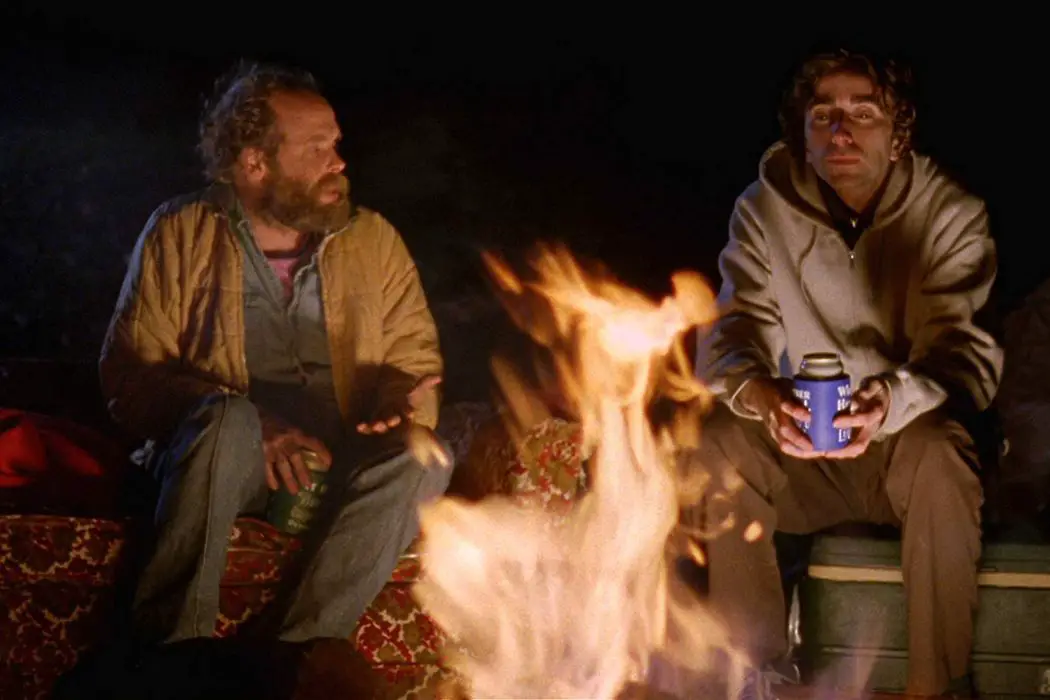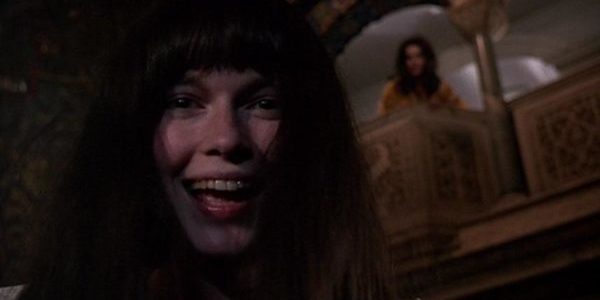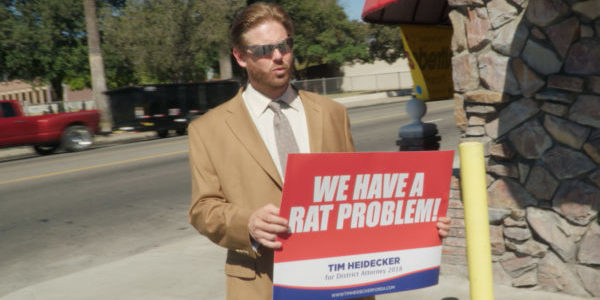Video Dispatches: SECRET CEREMONY, OLD JOY & MISTER AMERICA

Midwesterner, movie lover, cinnamon enthusiast.
Video Dispatches is a regular column covering recent home video releases.
Secret Ceremony (1968) – Indicator

While reviewing Indicator’s recent release of Joseph Losey’s Time Without Pity, I mentioned my difficulty with finding a comfort zone with the filmmaker, that outside of Boom!, I have had trouble closing the distance between me and his texts. With Secret Ceremony, Losey’s film about two women, one middle-aged (Elizabeth Taylor) and one younger (Mia Farrow), grieving their daughter and mother, respectively, find in each other someone to absorb a bit of their sorrow, I didn’t close that gap, but my admiration has grown for his offbeat articulations of sadness.
Secret Ceremony is exactly the type of film that benefits from the deluxe curation of a label like Indicator; t’s strangeness is given ample context and readings. In his included essay, Neil Sinyard talks about the many Loseys that developed over his career, and it turns out this was the beginning of a period that alienated many previous fans, including Pauline Kael. That makes sense, especially with the realization that the film came out the same year as Boom!, a famously maligned picture.
But one group that had the adverse reaction, zeroing in tighter on his work come the late 60s, was unsurprisingly the young French critics — whom I previously mentioned considered Time Without Pity a masterpiece. You get a peek into this critical consideration during a cool supplemental feature culled from a French TV program Cinema Critique, where Losey, in conversation with critic Michel Mourlet, calls the film a poem … “a terrifying poem, but a poem.” He goes on to privilege the film’s atmosphere and Taylor’s performance.
Mourlet talks about how terrible a point of view is to make a movie with the objective to “make people think” and uses Losey’s filmography as a counterpoint, saying he lets life develop in front of the camera, not to make a point. Secret Ceremony certainly has that quality in spades.
Old Joy (2006) – Criterion Collection

I wasn’t sure if Old Joy was my personal favorite film of Kelly Reichardt’s because it was my introduction to her work, when it made its way to the small campus cinema during my undergrad, but revisiting it for the first time in ages revealed it to be an even wiser film than I recalled. While the script — this marks the beginning of her collaboration with Jonathan Raymond — is precise and pointed in its sparse dialogue, achieving a near Carver-like economy, Reichardt’s signature minimalism and proclivity to dwell on ambient environments, allows Old Joy to be a beautifully open film about a specific liberal masculinity in crisis.
The climax is a remarkably tender moment where Kurt (indie folk artist Will Oldham) offers his hands on Mark (Daniel London)’s body, massaging his nude shoulders while they try to achieve perfect silence at a Portland hot spring. In his appended essay, Ed Halter mentions that Old Joy, which he aptly calls a “postmacho buddy film,” came out not long after Ang Lee’s Brokeback Mountain. The moment in Lee’s film when the undercurrent sexuality between two men suddenly blossoms while camping, no doubt hung over Reichardt’s climax. I don’t know if it’s the distance from that moment or that I’ve now seen the film a few times, but the question of homoeroticism doesn’t seem as relevant to me now. As Halter puts it, “The psychological intimacies they share with each other are just as naked, enacting their own kind of unspoken love.”
On the disc are a few newly filmed interviews, including one with Reichardt and one between London and Oldham. The actors talk about the experience of making the film and how real life and making the film blurred to become a singular experience. London seems to carry the conversation, but while Oldham may seem slightly annoyed or awkward, he chimes in with some unsurprisingly insightful observations. Reichardt’s interview is also a pleasure. She talks about the film’s political context, working with a tiny crew, her relationship with executive producer Todd Haynes and working with Yo La Tengo, whose score is so much more essential than I remember.
Mister America (2019) – Magnolia

Over the past decade, Tim Heidecker and Gregg Turkington have been steadily making the Adult Swim-financed web series “On Cinema at the Cinema,” a satirical show about film criticism and so, so much more. It has branched off to include annual Oscars specials, a five-hour C-SPAN parody, a book and more. The latest leg to grow from the On Cinema production is Mister America, a full-length political mockumentary following Heidecker’s alter-ego running for district attorney of San Bernadino.
At 90 minutes, Mister America is a pleasant riff on the genre, while only barely overly staying its welcome. The biggest problem with the film is that its protagonist, a complete idiot with no credentials for his campaign, isn’t in favor, which saps it of much of any satirical use it could have continued to play on, and that would’ve been consistent with the previous trial.
Magnolia’s release of the film is better than fans probably expected the project getting, with a deleted scene, campaign ads, a special episode of “On Cinema at the Cinema” and an out-of-character commentary with Heidecker, Turkington, director Eric Notarnicola and producer Andrew Porter.
The commentary is time well spent, with insightful looks at how to make one of these guerilla mockumentaries, and mentions things like their various influences (Street Fight and Weiner). I really wish the series as a whole would get a release, perhaps from a label like Shout, who have put out Adult Swim series in the past.
Does content like this matter to you?
Become a Member and support film journalism. Unlock access to all of Film Inquiry`s great articles. Join a community of like-minded readers who are passionate about cinema - get access to our private members Network, give back to independent filmmakers, and more.













